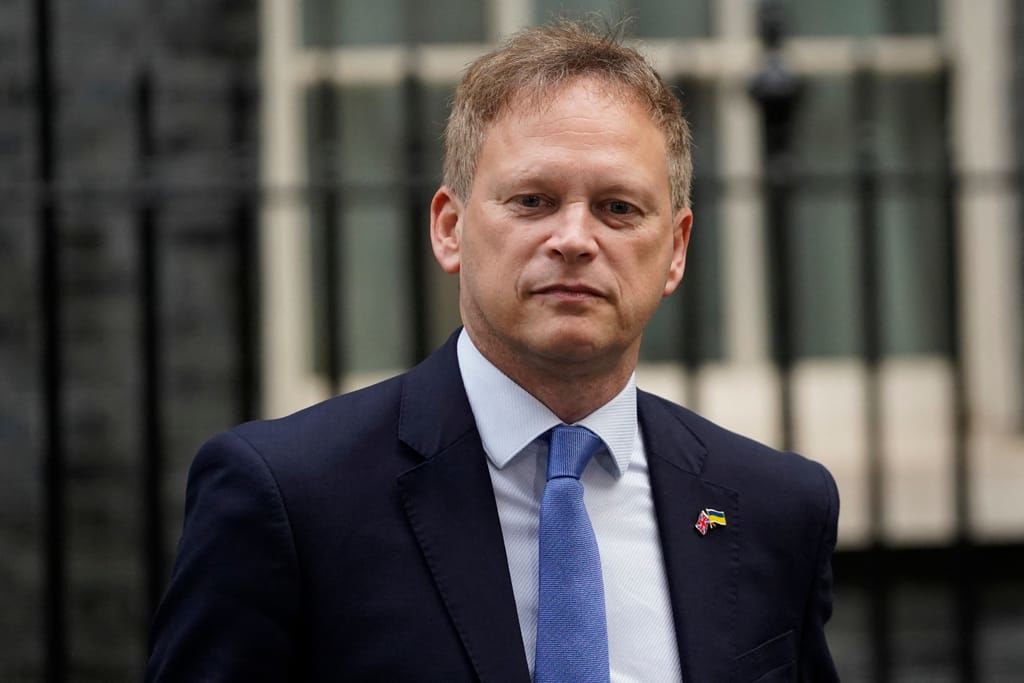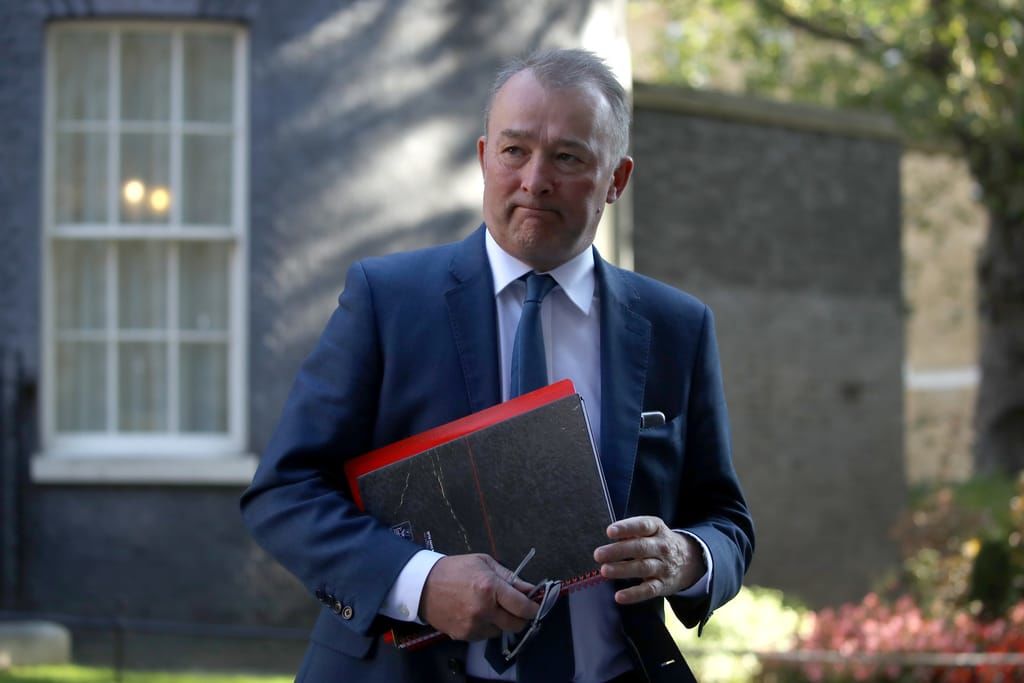
Rishi Sunak has Tory rebel trouble all of his own
The letters E-R-G no longer strike fear into the heart of a British prime minister — but Rishi Sunak faces a marauding challenge from disgruntled Tory MPs which could yet prove equally dangerous.
The notorious European Research Group (ERG) — a caucus of Conservative hardline Brexiteers who blocked Theresa May’s attempts to get her Brexit deal through parliament — is now a shadow of its former self, according to multiple Conservative MPs and aides.
But in its place, Sunak faces a rolling procession of ‘pop-up’ Tory rebellions on everything from housing policy and onshore wind farms to his stance on China. Indeed, veterans of the May years believe Sunak may yet have a harder time of it than their former boss, amid tanking Tory poll ratings and steep economic challenges.
“It was bad in the Brexit years, but it was slightly more straightforward because it was ‘can you square the negotiability in Brussels with what the Tory right want?’ The answer was no, but the question was simple,” a senior May-era adviser said.
“On any given day at the moment it is hard to be certain what this government has a majority for,” they said of Sunak’s fledgling administration. “We are watching a group of [MPs], some of whom are sincere and able, work out what is in their interests to do to secure their future — and there is no consensus on what that is.”
Fading ERG
The ERG was once the most-feared force within the Conservative Party, its every pronouncement pounced upon by Tory Kremlinologists. May’s precarious parliamentary position — she lost her majority at the 2017 general election — gave the well-organized and militant grouping considerable sway over her every move.
Yet the ERG’s eventual victory in securing Britain’s hard exit from the European Union appears to have robbed the group of its raison d’être. At the same time, an influx at the 2019 general election of fresher-faced Brexit-backing MPs who defeated Labour in the party’s former strongholds has also shifted the backbench dynamic.
“I went to literally one [ERG] meeting — that was enough,” said one Brexit-backing Tory who joined the Commons in 2019. “Frankly, it was a load of predominantly old grumpy men who seemed to be reliving old battles.”
Byline Times reported earlier this month that the ERG had just 12 paid-up members this year — falling from 35 in 2020, the last time the group recorded membership contributions.
“They haven’t been very well organized for the last couple of years,” said one former Tory adviser with an insight into the workings of the ERG. “The previous head organizer, Steve Baker, is now a minister, so there’s been a bit of a personnel change within the ERG world.”
Whack-a-mole rebellions
But while the ERG bloc may be diminished, Sunak still has little room for manoeuvre when dealing with the European Union.
“I think that even without a kind of formal organization like the ERG, any move that is seen to dilute or revert into a sort of Swiss-style arrangement … would [trigger] quite a significant backlash from right across the party,” the 2019 MP quoted above said, referencing a recent Sunday Times article in which a senior member of the government floated the prospect of closer trade with Brussels. Sunak was forced to slap down the suggestion within hours following a bitter backbench backlash.
 Sunak’s business secretary, Grant Shapps, has also signaled a potential U-turn on wind farms
Sunak’s business secretary, Grant Shapps, has also signaled a potential U-turn on wind farms
And beyond Brexit, Sunak is facing further rebellions on multiple fronts barely a month into his new job. One former Tory whip said fellow MPs are feeling a great sense of “fed-upness” following a disastrously chaotic year in which the party has cycled through three different prime ministers and seen its poll ratings collapse.
Sunak has already been forced to delay votes on the government’s flagship Levelling Up and Regeneration Bill — aimed at closing regional inequalities that have long blighted the U.K. — in the face of a backbench rebellion. A humiliating 60 Tory MPs, including many centrists in prosperous parts of southern England, signed an amendment to strip housebuilding targets from the planned legislation.
Sunak’s business secretary, Grant Shapps, has also signaled a potential U-turn on wind farms, amid mounting pressure from another faction of Tory MPs keen to boost the U.K.’s domestic energy security.
Simon Clarke — a key ally of Liz Truss, who served in the Cabinet during her brief stint as prime minister — has been leading the charge for Sunak to reverse his opposition to a wave of new onshore wind turbines, a thorny issue for successive Conservative leaders.
Sunak’s supporters suspect the effort is at least in part motivated by revenge for the downfalls of both Truss and Boris Johnson.
“It’s not a coincidence Boris [Johnson] and Liz [Truss] are on it,” one Sunak-backing MP said, referencing the fact both former PMs who were ousted from Downing Street this year have backed Clarke’s campaign.
Dwindling majority
Loyal ministers and aides insist Sunak wasn’t blindsided by either rebellion, however. “The fact that MPs have strong views around things like planning comes as absolutely no surprise to us,” one adviser noted drily.
They also point out the relative ease with which Sunak is pushing his tax-raising, public spending-squeezing recent fiscal plans through the Commons. That, they say, suggests Tory MPs are still united on the big questions.
“This is a bit of a return to traditional grumpiness,” one Sunak loyalist minister said. “Because there isn’t an ideological objective in mind, it is more of an issues-based [one], which is easier to deal with in some regards because you can just deal with the issue.”
But others think the speed and momentum of the rebellions should ring alarm bells for a government which now has a working Commons majority of fewer than 70.
“When it gets difficult, people try to self-protect and differentiate themselves [from the party line],” one serving minister said. “There is not a great deal the government can do.”
Already, opposition Labour Party leader Keir Starmer has sought to capitalize on Sunak’s apparent unpopularity with many of his backbenchers, repeatedly highlighting Tory disunity when the two leaders go head to head.
 They described Simon Hart as “a really nice guy” — but pointed out he
had never previously served as a whip and did not have “the necessary
reach”
They described Simon Hart as “a really nice guy” — but pointed out he
had never previously served as a whip and did not have “the necessary
reach”
In the House of Commons on Wednesday, Starmer goaded Sunak, noting: “Every week he gets pushed around — and every week he gets weaker.”
More to come
Numerous further pitfalls lie ahead for Sunak and his team.
The former whip quoted above said a long-delayed announcement on leveling-up funding could spell further trouble, with MPs whose constituencies are overlooked likely to be triggered into rebelling.
Others warn that Tory China-skeptics who have coalesced into their own China Research Group have the capacity to cause trouble on legislation around surveillance, education and government procurement — although those close to the group claim they usually achieve their aims through quiet negotiation with ministers, before it comes to crunch votes.
And other, disparate groups of backbenchers may prove problematic too. Sunak supporters who were snubbed in his reshuffle on entering office have been left smarting — and even the prospect of a further ministerial shake-up next year, which the former whip said had already been dangled by No. 10 Downing Street, may not be enough to get them to toe the line.
The steady procession of Tory MPs quitting Parliament at the next election also appear ‘unwhippable,’ one government official said — and Sunak’s existing whipping operation is already seen as “very soft.”
A second former Conservative whip told POLITICO last month that Sunak may have underestimated the importance of the role of chief whip when he appointed Simon Hart to the role. They described Hart as “a really nice guy” — but pointed out he had never previously served as a whip and did not have “the necessary reach.”
“When you’re PM, you have to do something about [discipline] because otherwise you’re not going be in power long,” the first former whip said. “I think a harder line is probably is needed — because if people get in the habit of doing something, it just carries on.”










